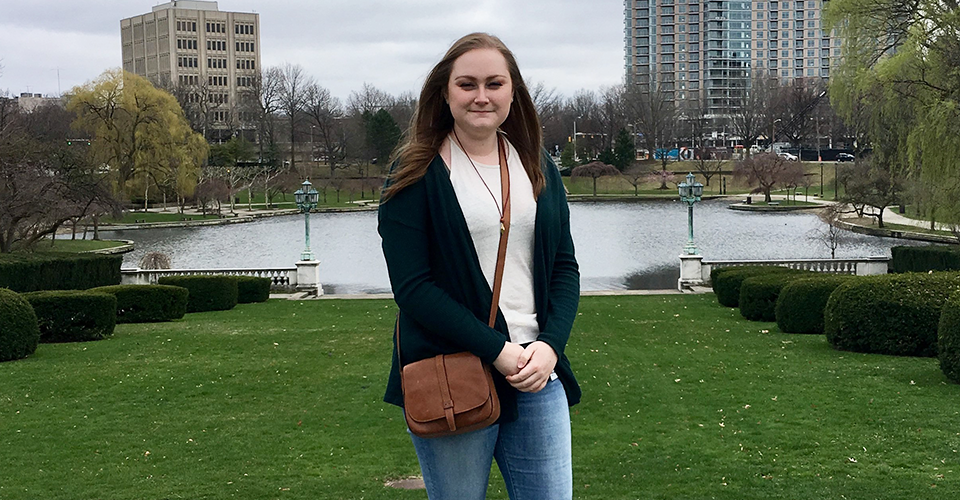Members of the Student Wellness Committee want to encourage other students to pursue wellness, both for themselves and as role models for future patients.
In upcoming posts, students will be writing about different aspects of the eight dimensions of wellness, as defined by the Substance Abuse and Mental Health Services Administration (SAMHSA). Here’s the second article, from first-year College of Pharmacy student Shaina Bird.
Transitioning into a graduate program can be a stressful time for anyone. The transition into my first year in the College of Pharmacy was made more stressful when just a month before making the 35-hour drive from Nevada to Ohio, I tested positive for potential food sensitivities to 34 different items.
This was a shock to me, because even though I knew I had problems with dairy, eliminating so many things from my diet to see if it would make a difference was daunting. But I knew that an elimination diet was the recommended way to confirm food sensitivity.
Managing my food sensitivities has made a major impact on my diet. It is one of my key personal concerns relating to wellness. Because it is nearly impossible to buy pre-made food that does not contain soy or dairy – two of my biggest triggers – I make almost all of my food from scratch to avoid processed foods and to minimize problems. And although I can no longer eat pizza or ramen, I know exactly what I’m eating.
Clean eating is an unexpected benefit that has dramatically increased my wellness and positively impacted my overall health since I arrived at NEOMED. But you do not need to have a food allergy to improve your diet. Sequoia Wellness Center has a registered dietitian available to all students, faculty or staff who want to improve their diets and achieve their wellness goals. Check it out next time you are there.
